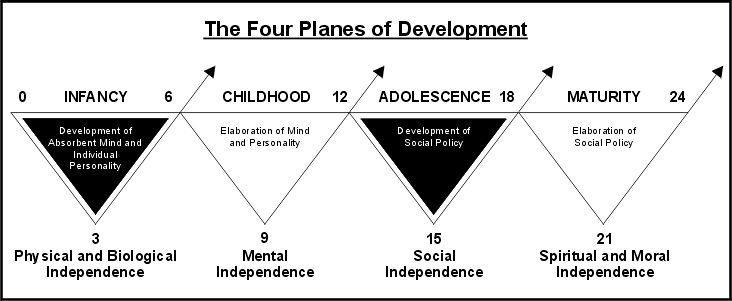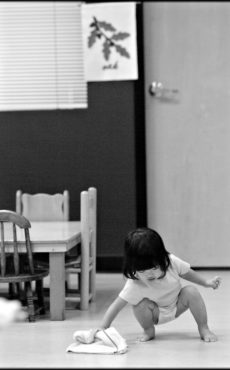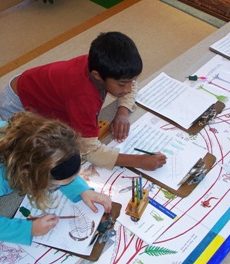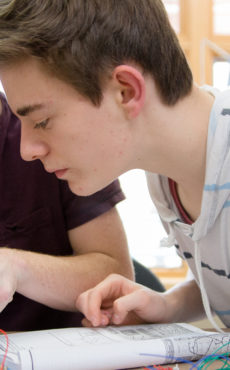Your Child’s Development
The foundation of the Montessori method of education is the Four Planes of Development. At each plane, the associated human tendencies and characteristics inform how one can best prepare an environment for optimal learning.
"I have found that in his development, the child passes through certain phases, each of which has its own particular needs. The characteristics of each are so different that the passages from one phase to another have been described by certain psychologists as 'rebirths'."
~ Dr. Maria Montessori (The Four Planes of Education, page 1)
The following is a description of the Four Planes:


First Plane (Birth to Age 6):
“What is That?”
“There is in the child a special kind of sensitivity which leads him to absorb everything about him and it is this work of observing and absorbing that alone enables him to adapt himself to life. He does it in virtue of an unconscious power that exists in childhood… The first period of the child’s life is one of adaptation.”
~ Dr. Maria Montessori (The Absorbent Mind, page 57)
Characteristics of the First Plane:
- Period of physical and “spiritual” construction
- Need to feel loved and protected
- Mind doesn’t choose for itself
- Period of adaptation to surrounding environment
- Development of ability to formally communicate
- Development of coordinated movement
- Spontaneous physical movement
- Use of sensory organs important
- Work alone or in parallel
- Need for purposeful work

Second Plane (Ages 6 to 12):
“Why or How Is It?”
“Since it has been seen to be necessary to give so much to the child, let us give him a vision of the whole universe. The universe is an imposing reality, and an answer to all questions. We shall walk together on this path of life, for all things are a part of the universe, and are connected with each other to form one whole unity.”
~ Dr. Maria Montessori (To Educate the Human Potential, page 5)
Characteristics of the Second Plane:
- Greatest potential for intellectual development
- Relatively calm and stable
- Disappearance of rounded, baby-like contours of the body and face
- Lose teeth
- More robust and less sickly
- Ready to move from concrete learning to abstract learning
- Use imagination
- Need more internal than external order
- Adventuresome
- Sense of justice
- Social; “Herd Instinct”
- Big work
- “Hero” worship

Third Plane (Ages 12 to 18):
“Who Am I?”
“The adolescent must never be treated as a child, for that is a stage of life that he has surpassed. It is better to treat an adolescent as if he had greater value than he actually shows than as if he had less and let him feel that his merits and self-respect are disregarded.”
~ Dr. Maria Montessori (From Childhood to Adolescence, page 72)
Characteristics of Third Plane:
- Idealism
- Need to discover their intended vocations
- Great change and relative instability
- Puberty
- Rapid physical and emotional changes
- Emotional and sensitive
- Need nurturing environment
- Need for respect
- Decrease in intellectual capacity
- Abstract learning

Fourth Plane (Ages 18 to 24):
“What Will I Do?”
“Culture and education have no bounds or limits; now man is in a phase in which he must decide for himself how far he can proceed in the culture that belongs to the whole of humanity.”
~ Dr. Maria Montessori (Four Planes of Education, page 14)
Characteristics of Fourth Plane:
- Spiritual, emotional and moral independence
- Think about place in and contributions to society and humanity
- Have personal interests
- Evaluation of social policy
- Personal responsibility
